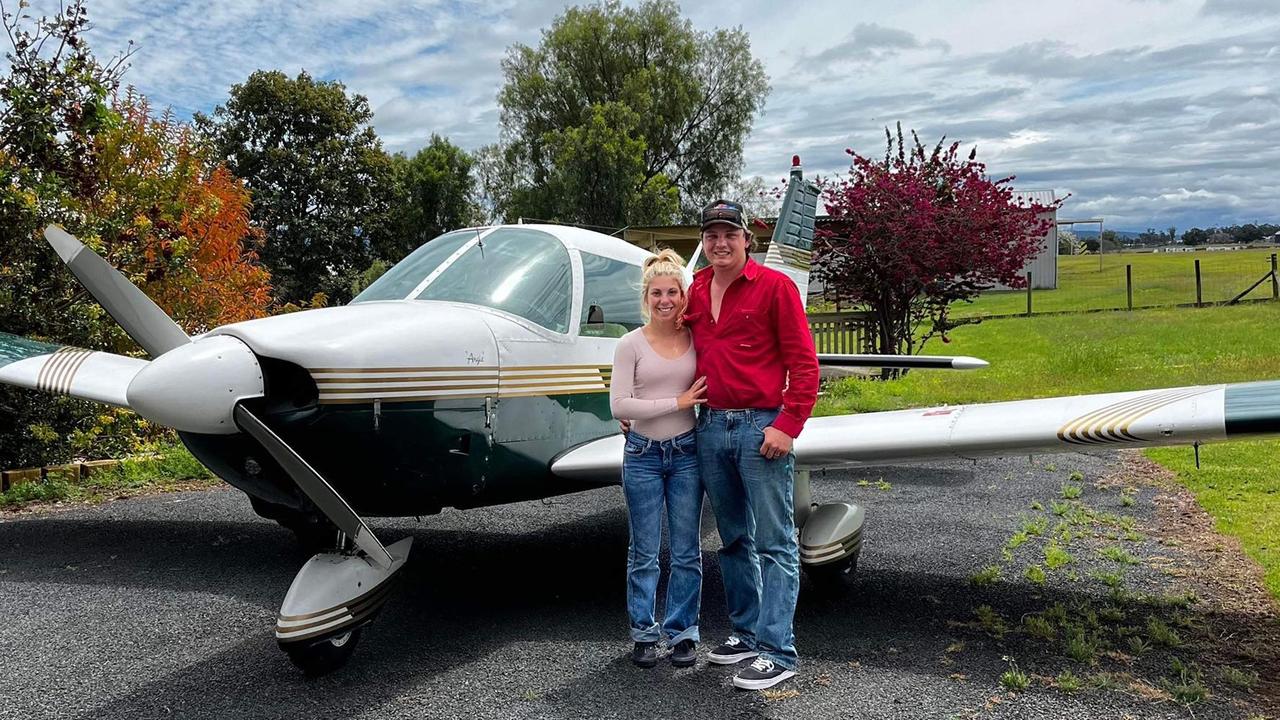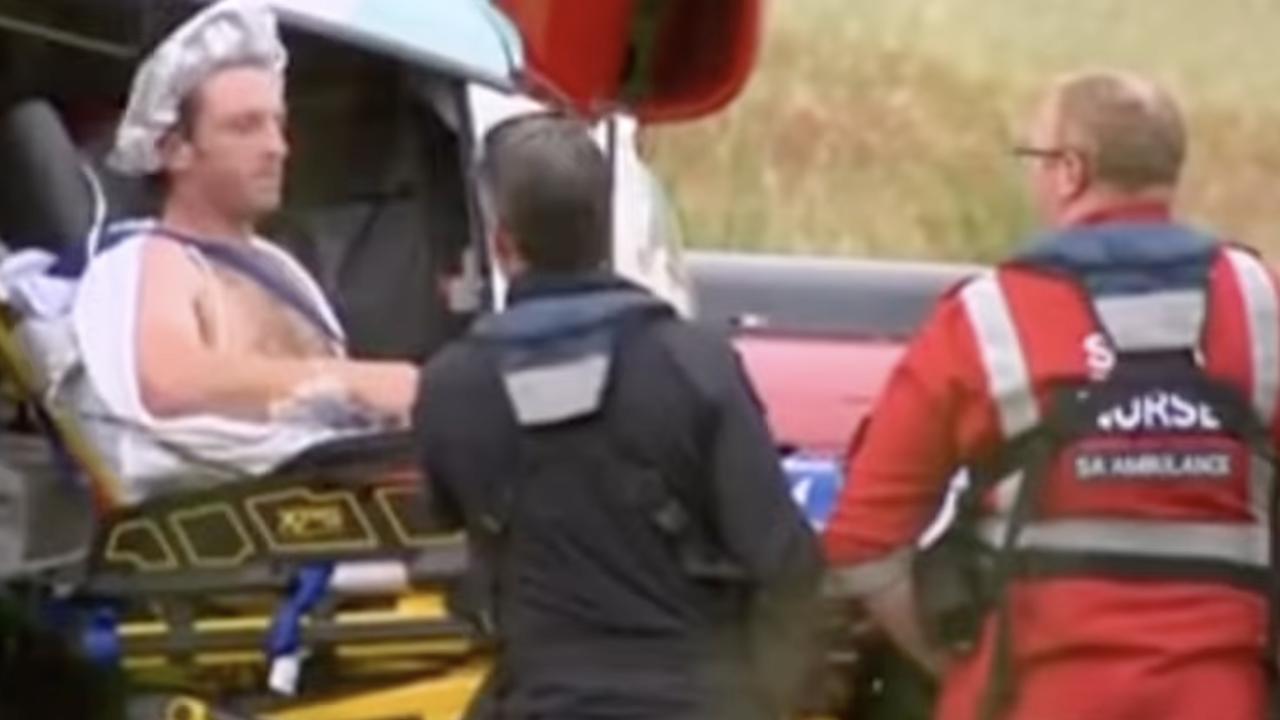Australian Transport Safety Bureau finds Rhiley Kuhrt not trained to fly before fatal plane crash
An investigation into a light plane crash that killed a young stockman and his pregnant wife has uncovered a startling fact.
The Australian Transport Safety Bureau has stopped its investigation into the fatal light plane crash that killed a young stockman and his pregnant wife after finding the pilot was not qualified to fly.
Husband and wife duo Rhiley and Maree Kuhrt were killed when their Piper Cherokee single-engine light aircraft crashed at the Clarke Ranges, west of Mackay in Queensland, during a storm on April 2.
Mrs Kuhrt, 24, was 27 weeks pregnant with baby Phoebe and was due to give birth in June 2023.

The couple had left Natal Downs Station heading for the Lakeside Airpark, south of the Whitsundays, when the fatal crash occurred.
When they failed to arrive, a massive search and rescue mission was launched on April 3.
The wreckage was on a steep slope at an elevation of 1913 feet, according to the ATSB investigation.
The report found Mr Kuhrt, 22, left in good weather suitable for flying, but the aircraft flew into poor weather conditions as it approached the Clarke Ranges, including low cloud.
It stated the Clarke Ranges had a topography “substantially more rugged and elevated than the coastal or inland portions of the planned route” as per Mr Kuhrt’s flight plan.
“Evidence gathered from the accident site suggested the aircraft impacted the ground intact,” the ATSB report stated.
“A review of records established the pilot did not hold an aeroplane pilot’s licence (either a recreational pilot licence or private pilot licence) required to conduct the flight.”

Investigators assessed records from the Darling Downs Aero Club, where Mr Kuhrt had trained, and found he’d only completed 30.4 hours of flight instruction between November 2021 and November 2022, including 2.9 hours on the Piper Cherokee.
“On that basis, the ATSB determined there was limited safety benefit in continuing to direct resources at this investigation when compared with other priorities,” the report stated.
ATSB chief commissioner Angus Mitchell said pilot training was an essential part of flying.

“Licencing regulations administered by the Civil Aviation Safety Authority are designed to ensure pilots are properly trained and qualified to manage challenges likely to be encountered during flying operations,” Mr Mitchell said.
“This includes training intended to teach pilots to identify and manage situations presented by adverse weather, both at the pre-flight planning phase and during flight.
“When pilots operate outside the licensing regulations, they remove built-in safety defences.”

Mr Mitchell said the tragic circumstances of the fatal crash was an important safety lesson for all pilots.
“This accident highlights the importance of following the standards for the operation and maintenance of aircraft to ensure the safety of flight and further demonstrates that weather continues to remain one of the most significant causes of accidents in general aviation,” he said.
“The ATSB encourages all pilots, regardless of qualification or experience level, to develop the knowledge and skills required to avoid unintentional operations into adverse weather.”






